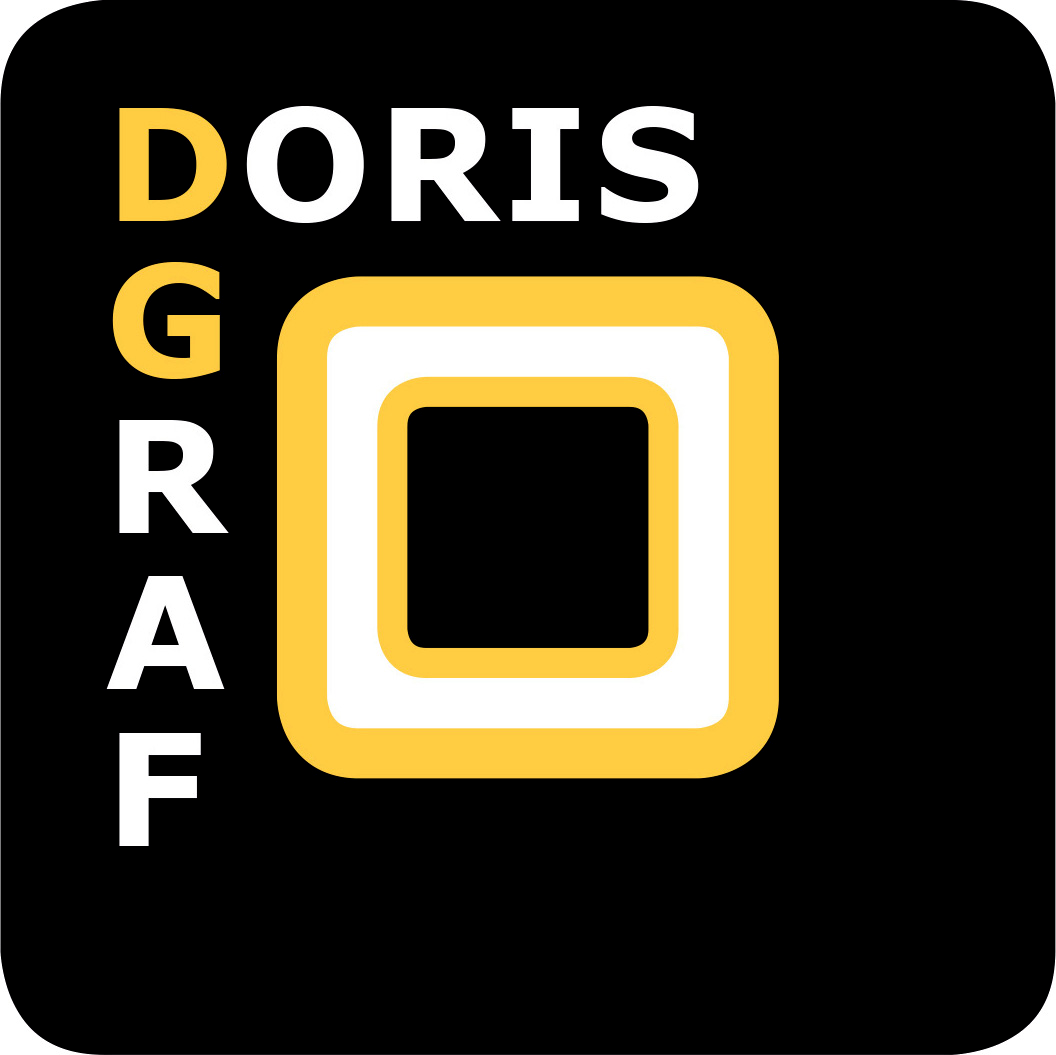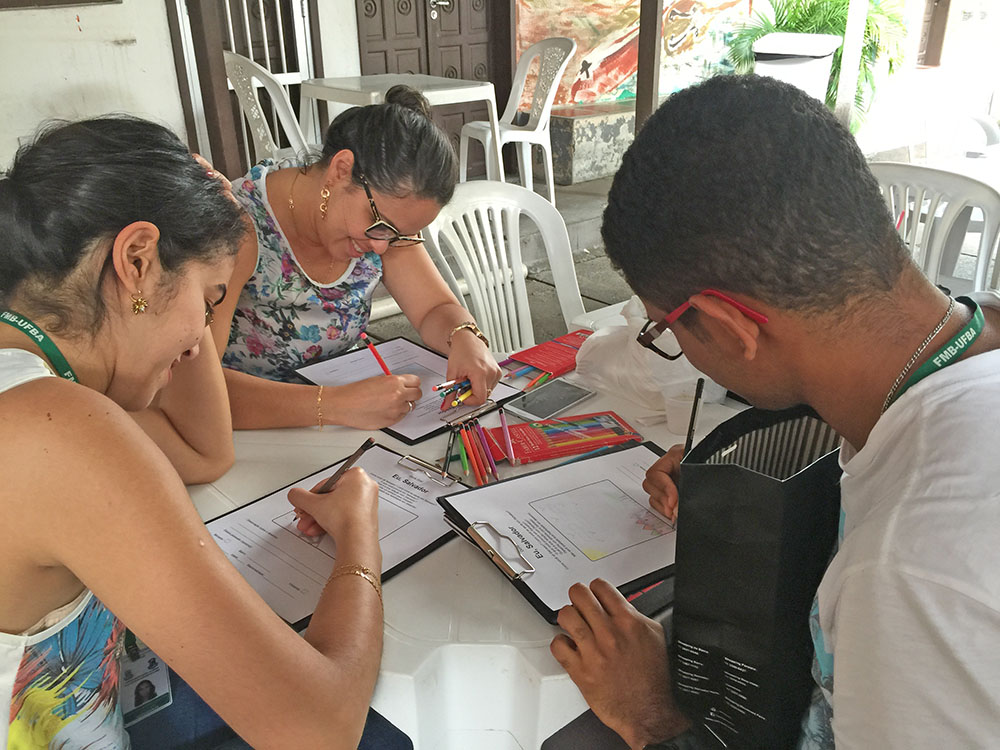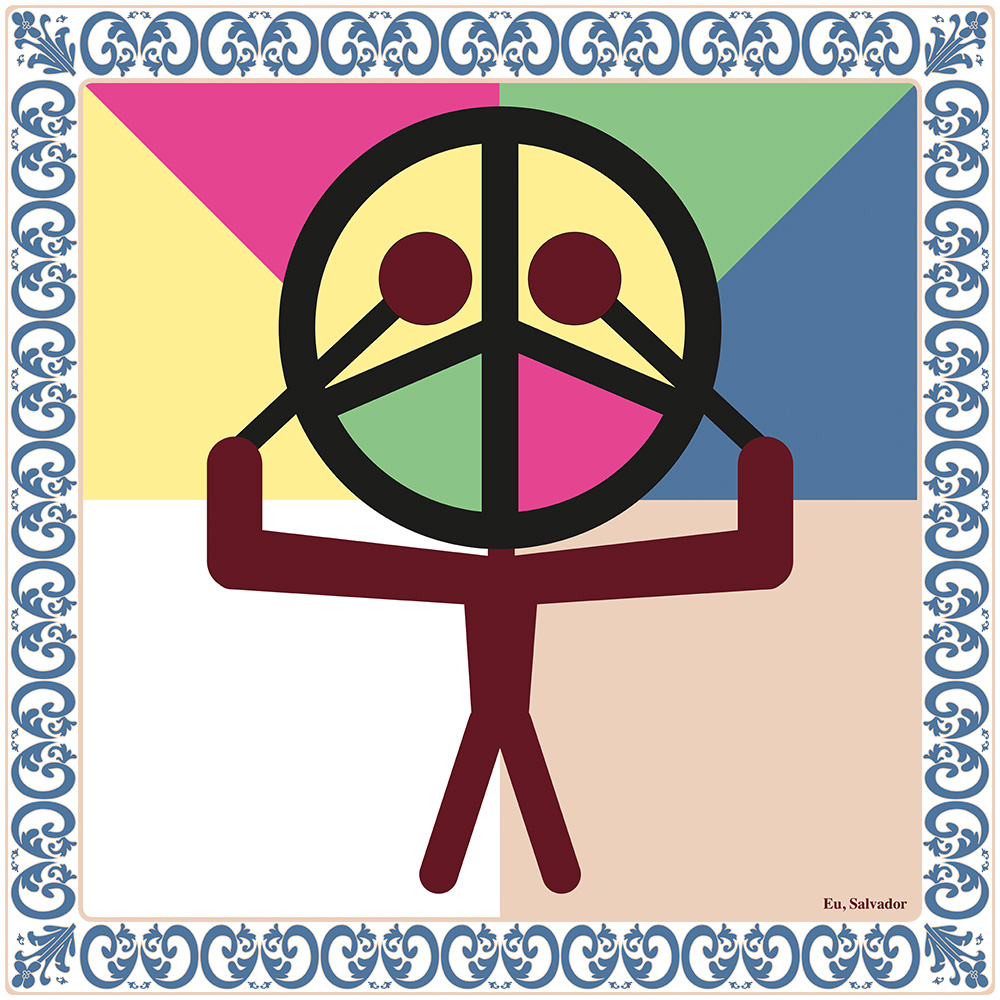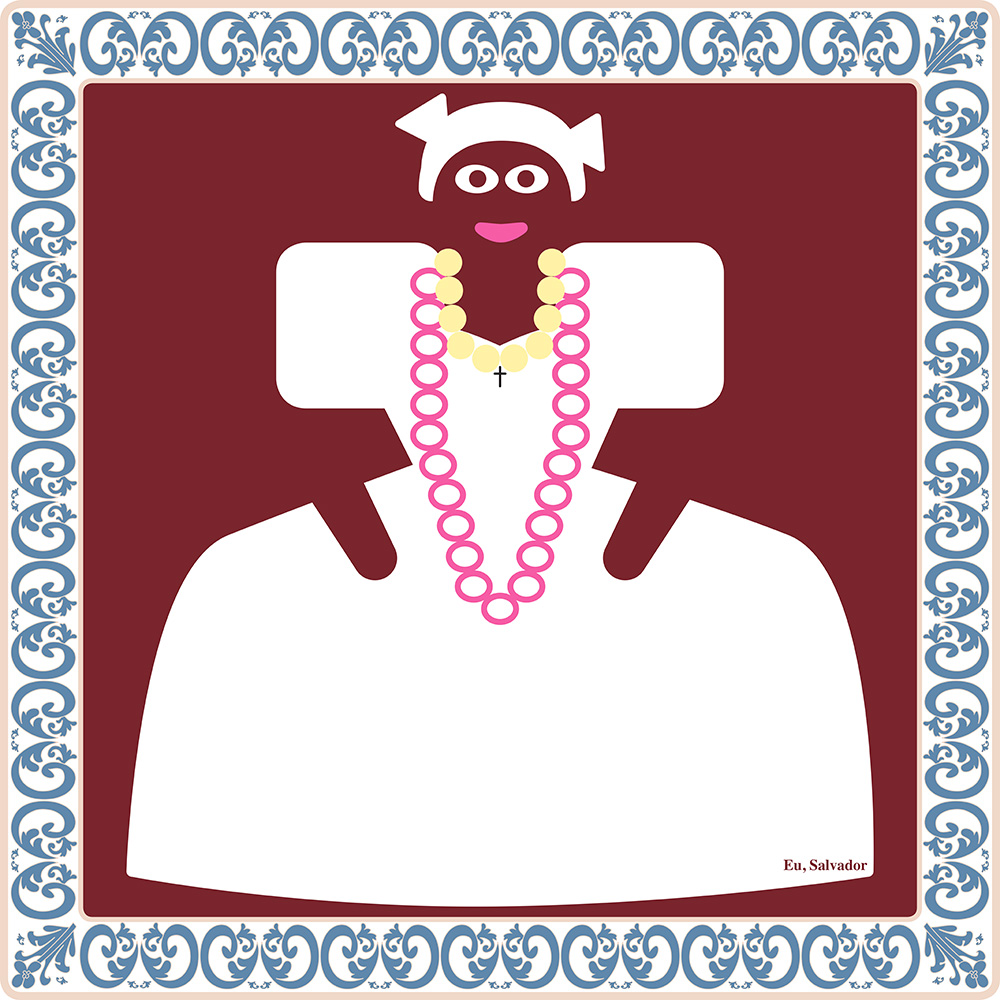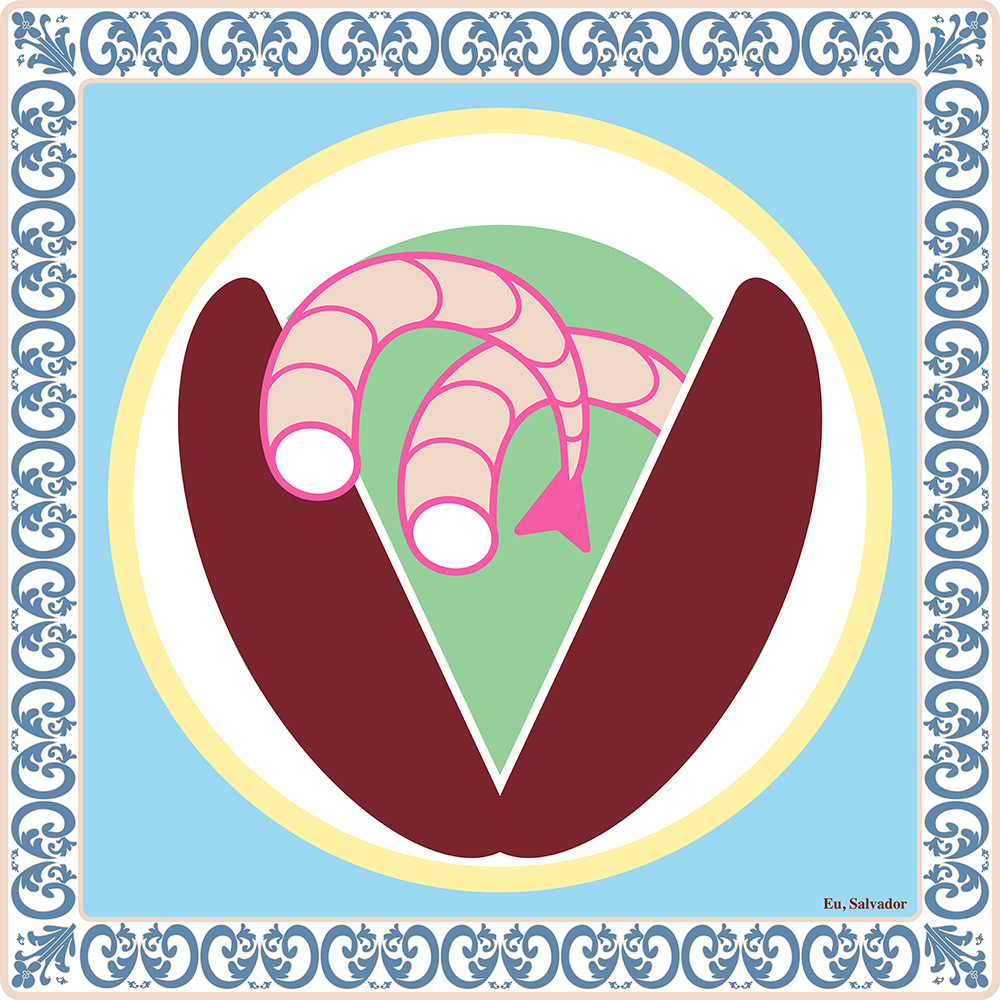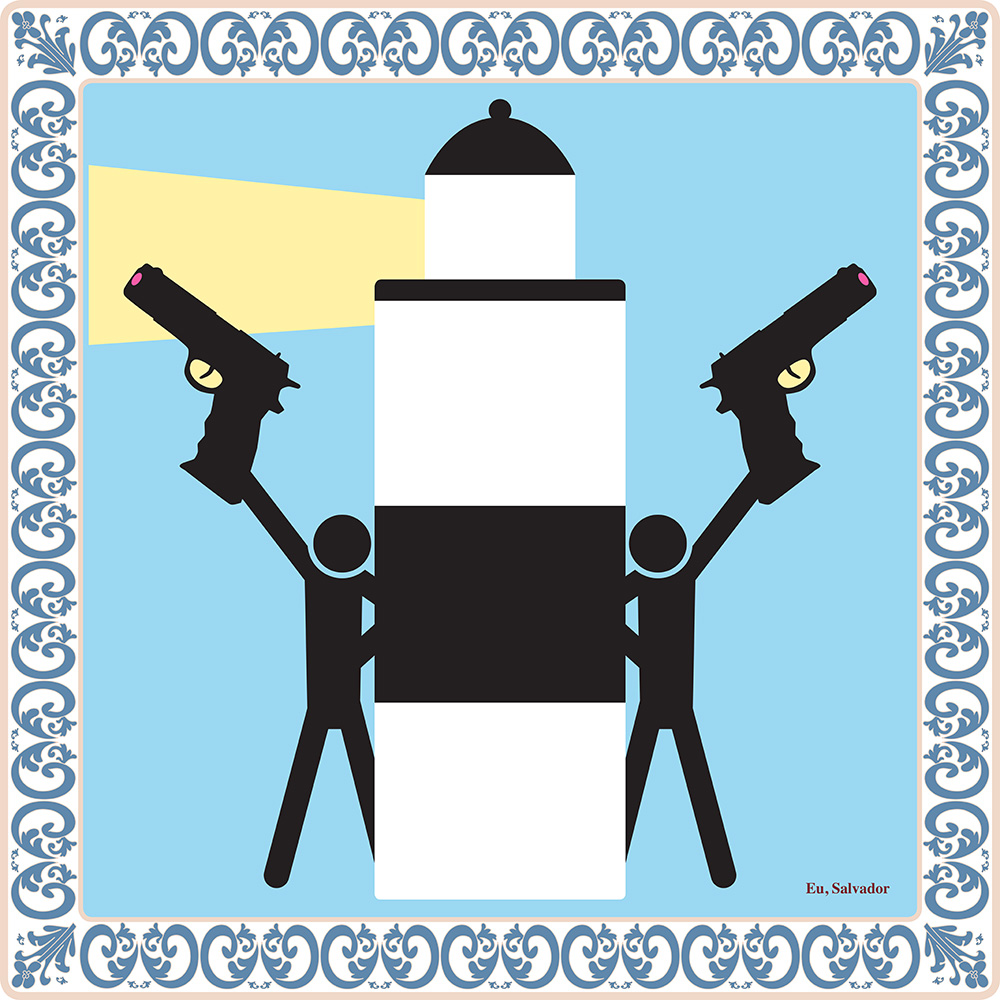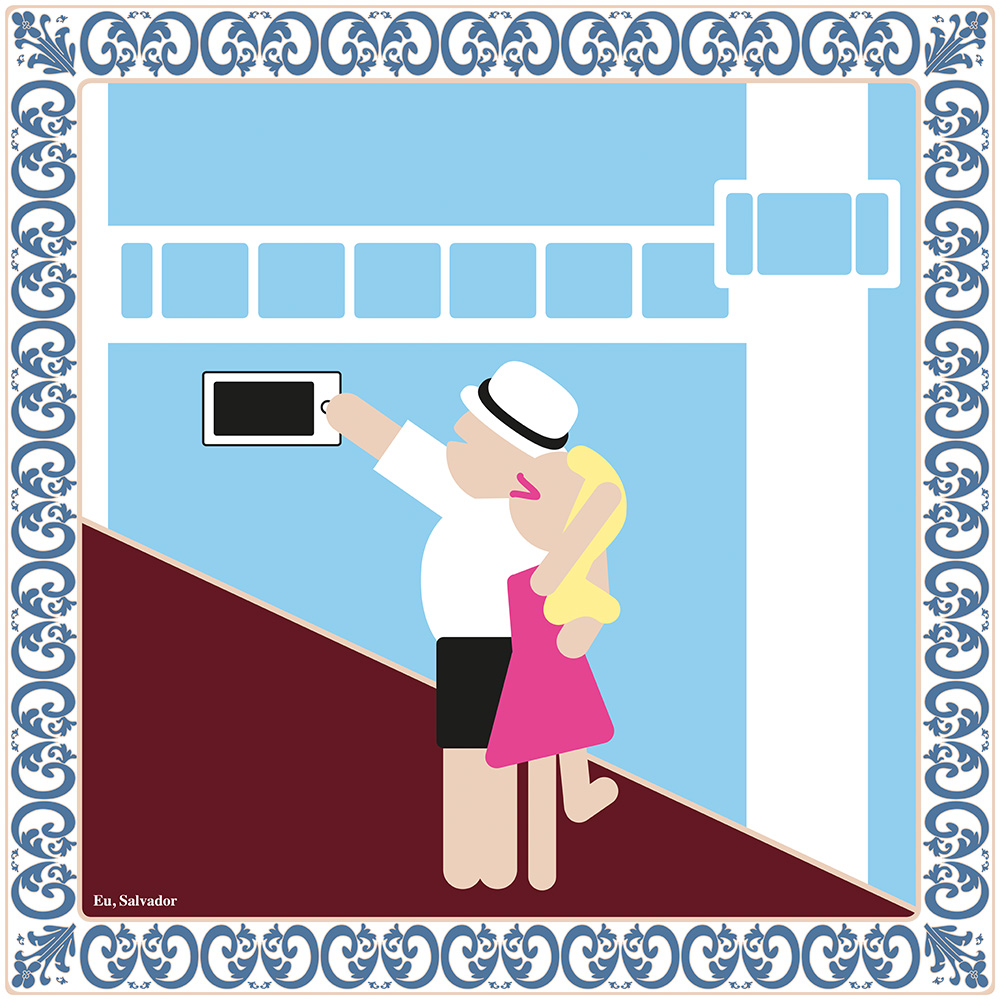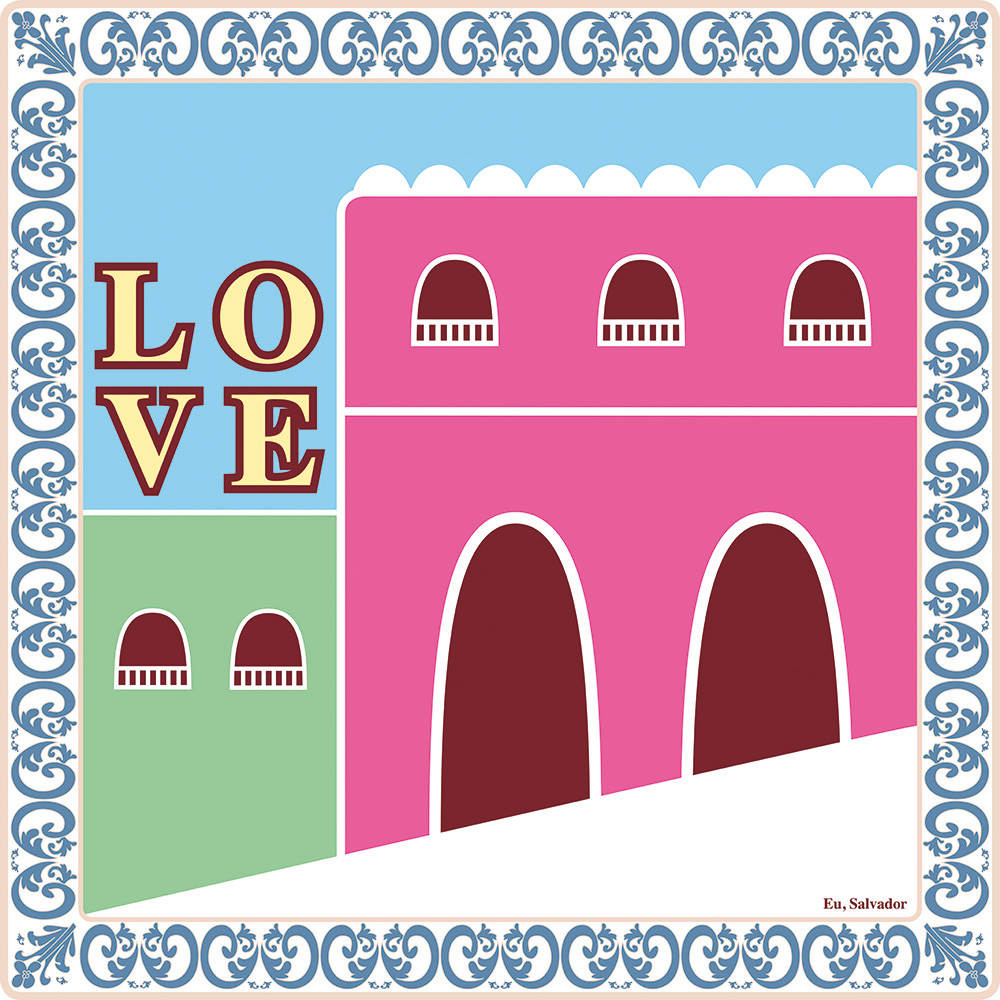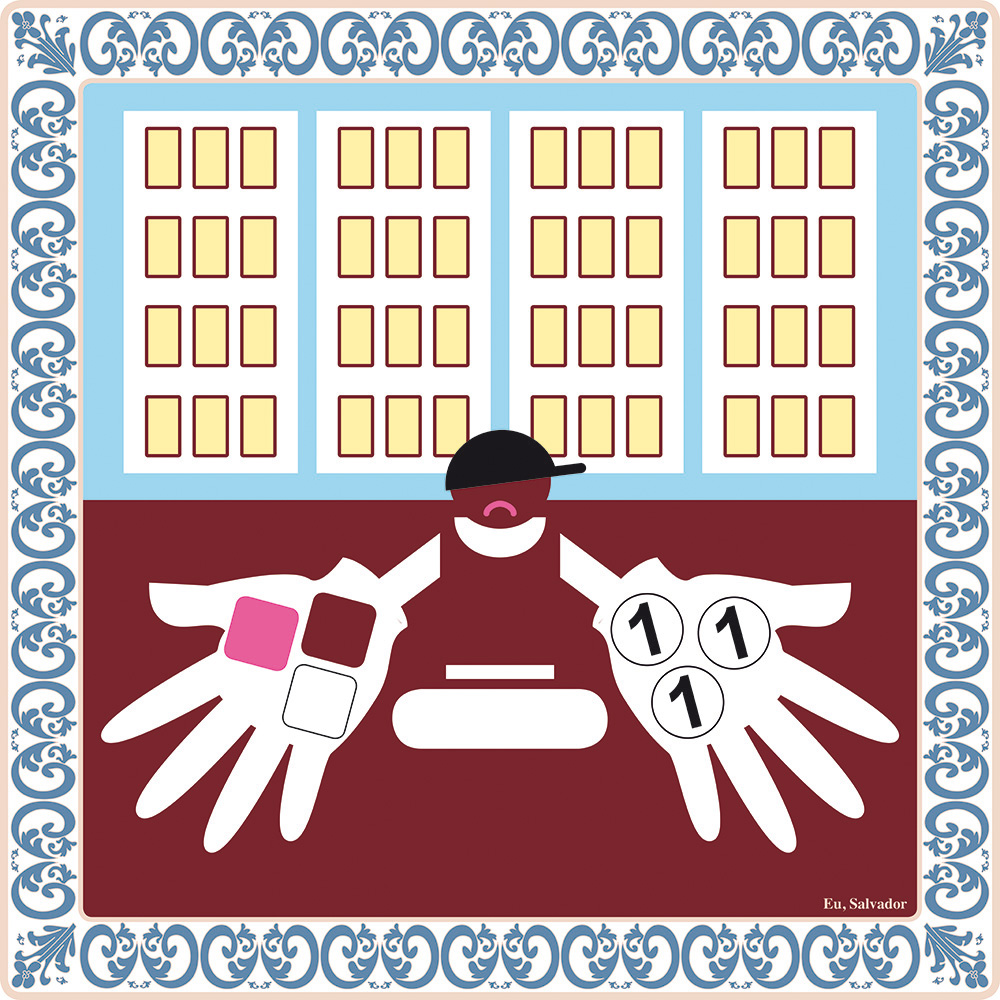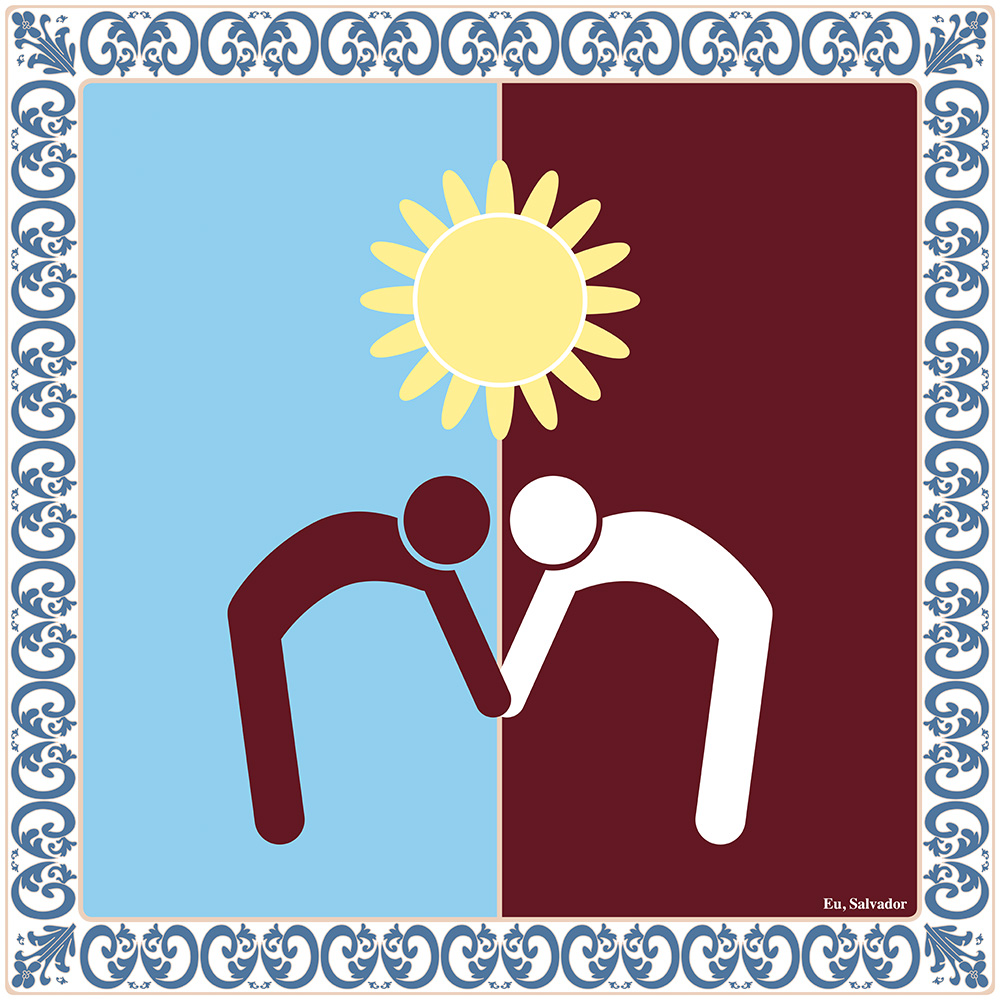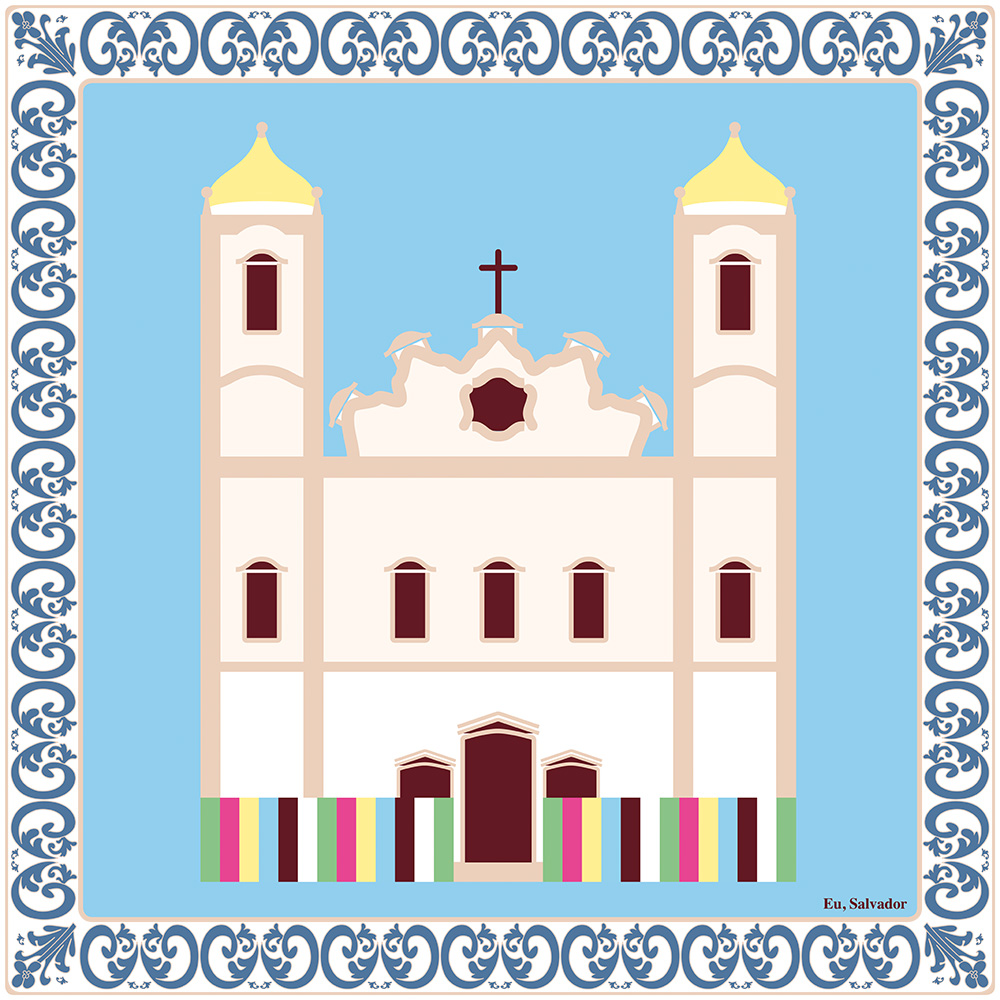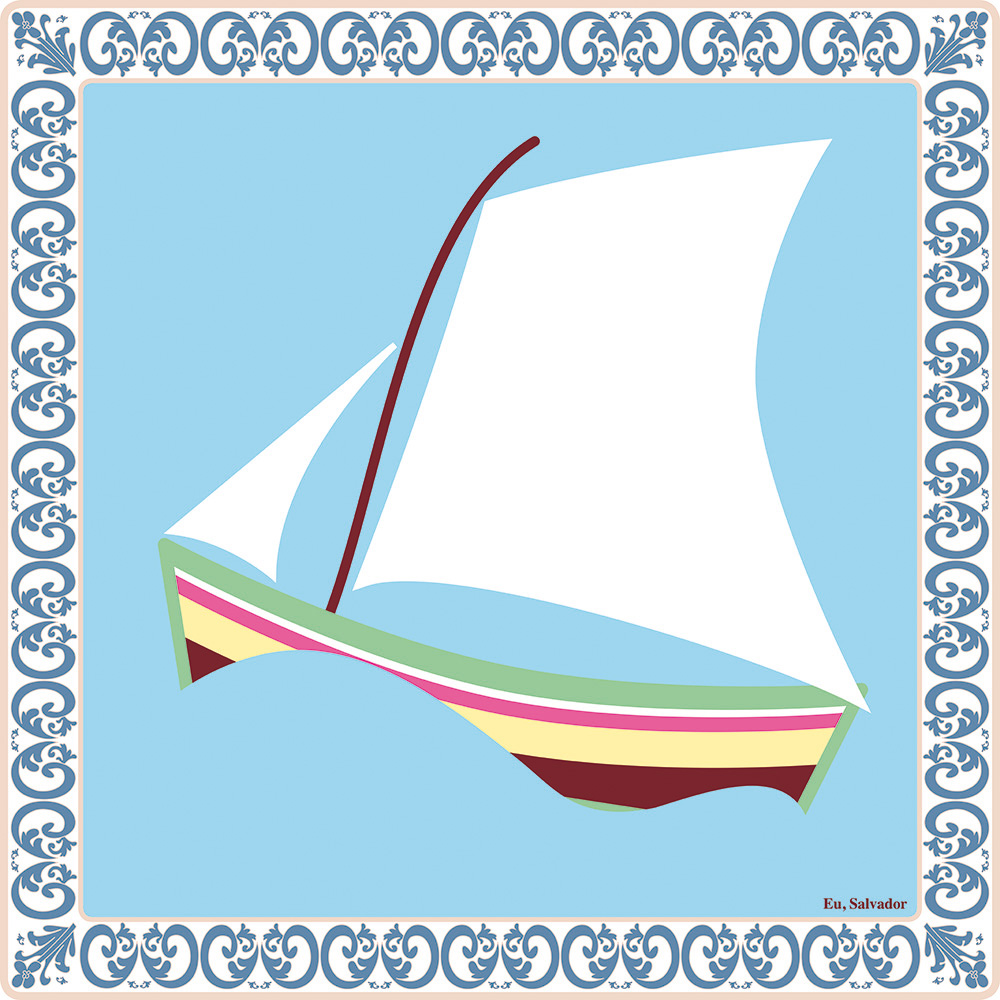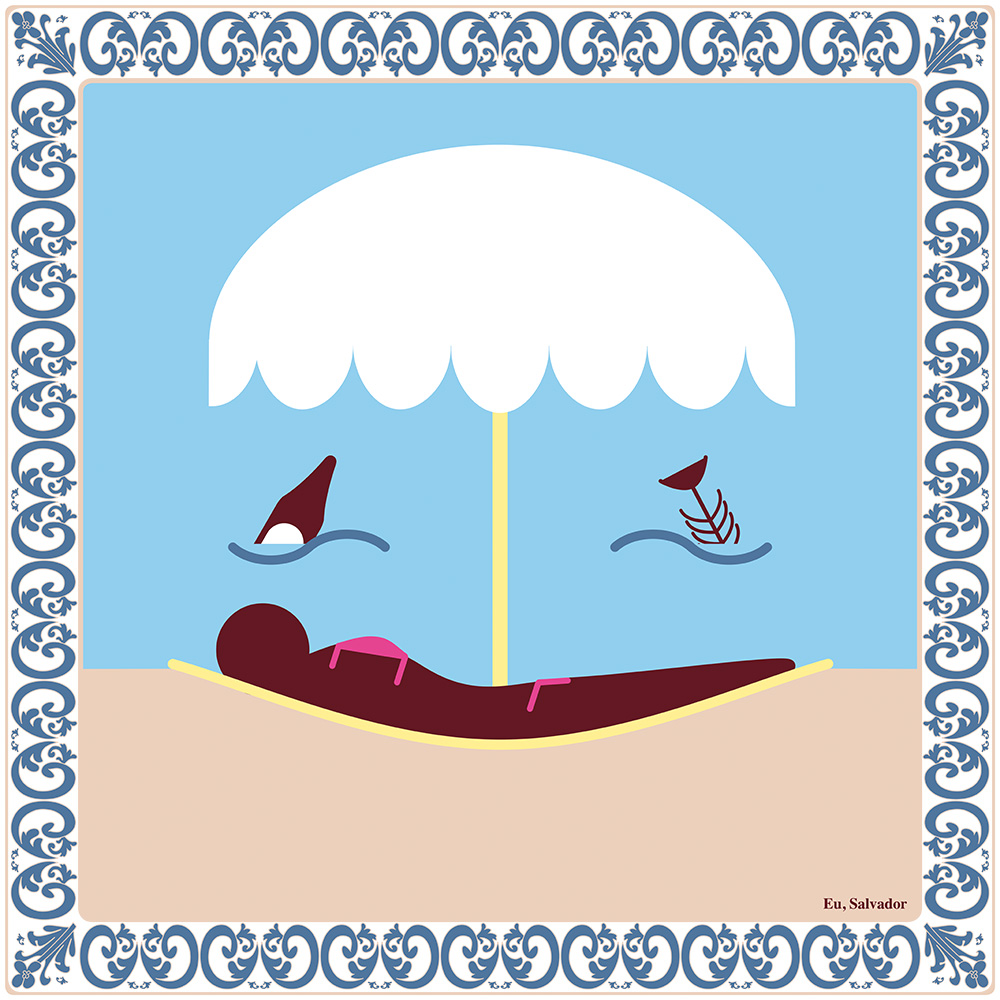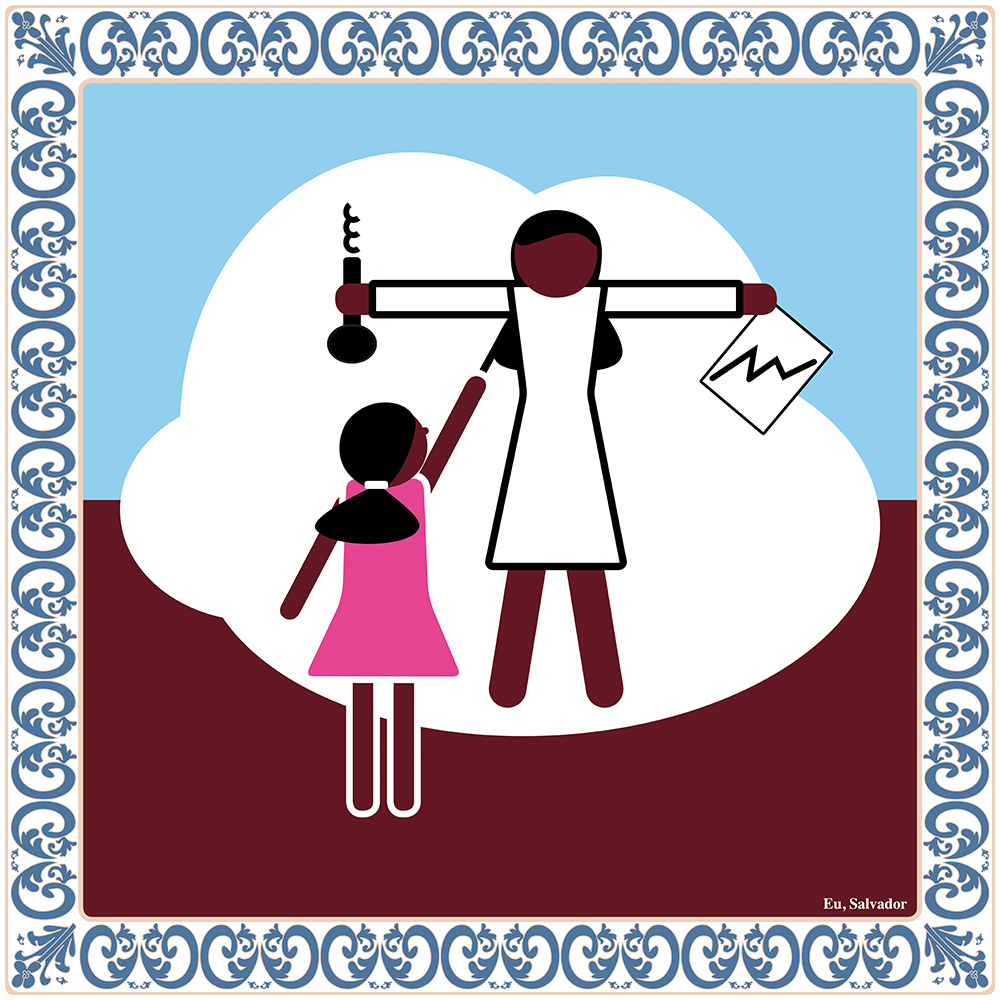CityX - Eu, Salvador
Art Project 2016/17
In September 2016, Doris Graf and her team travelled to Salvador, capital of Bahia state, to start their third Brazil project. This first stage of a CityX project involved collecting drawings by city residents in the simplified form of a symbol.
Salvador was founded as the capital of the Portuguese colony Brasil in the mid-16th century when the fort of Santo Antônio da Barra was built, quickly becoming a trans-shipment point for slave trading from Africa. Today, Salvador is Brazil’s third largest city, and home to the world’s biggest urban population of African origin.
Salvador is the cradle of Afro-Brazilian culture. The famous African war dance, the capoeira, developed here. The city’s Afro-Brazilian music saw it labelled the “Creative City of Music”, and the Carnaval da Bahia is to be the world’s largest street carnival. But European colonial rulers also contributed to the formation of a strong urban identity: Salvador has 365 Catholic churches, and the Centro Histórico Pelourinho is listed as a UNESCO World Heritage Site.
This strong image of the city stood in contrast with the harsh political, economic and social reality at the time that Doris Graf began her project with the residents. Just a few weeks prior, the country’s president had been removed from office in a controversial dismissal process. Her government and that of her predecessor “had not only […] significantly increased the living standards of the lower classes; they had also democratised access to state universities”[1]. But the country’s rich elite had now taken over power, and a veritable battle to win the municipal elections was now being waged in Salvador itself.
In the face of this political climate, the people were asked to summarise their relationship with their city in a drawing. This involved the challenge of breaking down distrust and gaining trust; credibly conveying to the unsettled people that this was not a political campaign, but rather an art initiative. “For the average Brazilian, any form of power is not only a reason for mistrust, but also resistance […]. And there’s nothing dialectic about this resistance; it’s not based on political convictions”. Brazilians have developed an “anti-dialectic, aesthetic approach”[1] to handling those in power and eking out a living: The head of the art academy put together an improvised exhibition at short notice, with helpers and volunteers giving the artist access to schools from many different social milieus, a children’s home, and even a “socialist” Baptist church.
The contradictions and conflicts experienced by the people in their relationship with their city were reflected in the drawings, and, following a process of artistic appropriation, Doris Graf’s pictograms condensed and compressed them into the categories of Love & Loathing, Pride & Disappointment, Hope & Despair, Solutions & Suppression, and Awareness & Wishful Thinking. The project triggered clear inner conflicts and often intense emotions in many people, prompted them to think and reflect – and also did them good.
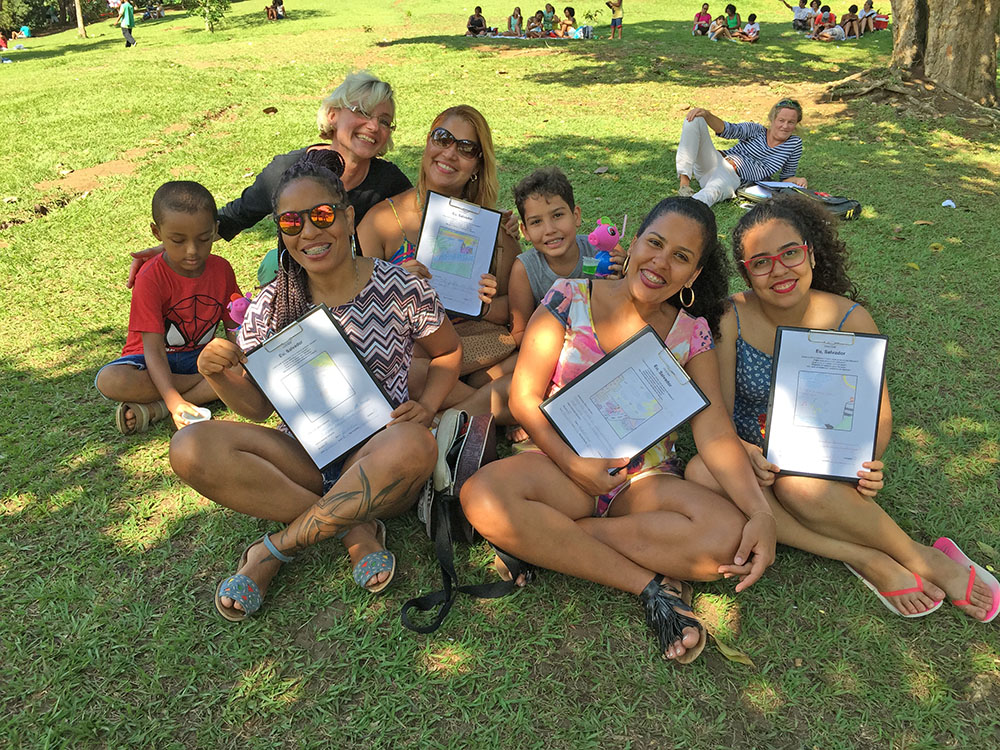
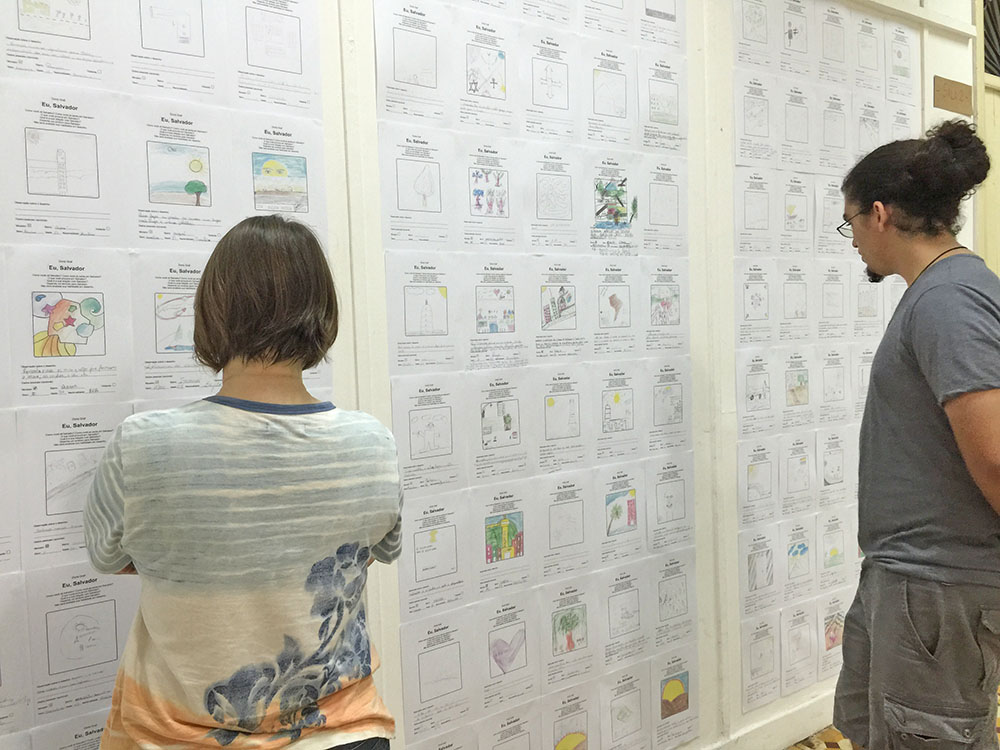

Soloexhibition “The Extended View”, “CityX - Eu, Salvador”, 2017, Kunstverein Essenheim, Germany
Drawings
Prints
According to a so-called artistic appropriation process, Doris Graf used the drawings produced in Salvador da Bahia to develop an image of the city in the form of pictographic visualisations.
